Sesja plenarna
"Ewolucja sieci zasilających wspierana rozwojem energoelektroniki – wyzwania, problemy i rozwiązania"
wygłosi prof. Ryszard Michał STRZELECKI - Uniwersytet Morski w Gdyni
Wykład dotyczy transformacyjnej roli energoelektroniki w kształtowaniu nowoczesnej infrastruktury energetycznej. Prezentowany materiał kompleksowo przedstawia i analizuje zagadnienia związane z zastosowaniem technologii energoelektronicznych w przesyle i dystrybucji energii elektrycznej. Rozpoczyna retrospektywa konwencjonalnych tyrystorowych i tranzystorowych układów „HVDC”, „FACTS” oraz tzw. „CUSTOM POWER”, których działanie i sterowanie, wspólnie z koncepcją systemową „FRIENDS”, tworzą paradygmat dzisiejszych „inteligentnych” sieci zasilających AC. W powiązaniu z tym omawiane są również nietypowe układy energoelektroniczne, w tym hybrydowe, wieloliniowe i tzw. „częściowe”, interesujące z punktu widzenia praktyki. Dalsza część wykładu skupia się na wybranych problemach i rozwiązaniach w obszarze rozwijających się mikrosieci DC. Rozpatrywane są wyłączniki i układy zabezpieczające, układy dopasowujące różne typy sieci DC, niekonwencjonalna przetwornica „częściowa” DC/DC (partial DC/DC converters), a także energetyczne filtry aktywne DC. Analizowane są również możliwość wykorzystania sieci trakcyjnych DC do wspomagania zasilania mikrosieci DC, w tym do ładowania EV. Z tą problematyką związane jest też prezentowane rozwiązanie wieloportowego przekształtnika z dodatkowymi modułami izolującymi HF. W podsumowaniu omawiane są problemy EMC sieci DC oraz przedstawiane wybrane rozwiązania przemysłowe przekształtników do zastosowań w sieciach AC i DC.
|
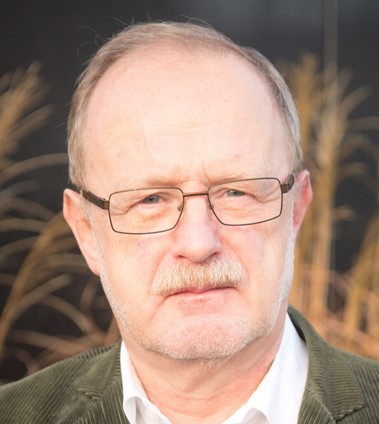 Ryszard Michał STRZELECKI ur. w 1955 r w Bydgoszczy, w latach 1976-1981 studiował na Wydziale Elektroniki Przemysłowej Politechniki Kijowskiej. Tam też w 1984 r. uzyskał stopień doktora. W 1991 r. w Instytucie Elektrodynamiki Akademii Nauk USRR w Kijowie obronił pracę habilitacyjną na temat „Sterowanie predykcyjne przekształtników energoelektronicznych z komutacją wymuszoną”. W 1999 r. z rąk Prezydenta RP otrzymał tytuł profesora nauk technicznych.
Działalność naukową rozpoczął w ATR w Bydgoszczy w 1981 roku. W latach 1993 do 2003 pracował w Uniwersytecie Zielonogórskim, gdzie od 1995 kierował Instytutem Inżynierii Elektrycznej. Od 2004 do 2017 był zatrudniony w Akademii Morskiej w Gdyni, a także od 2008 do 2021 w Instytucie Elektrotechniki w Warszawie. W latach 2017-2024 był związany z Politechniką Gdańską. Obecnie jest profesorem zwyczajnym w Uniwersytecie Morskim w Gdyni w Katedrze OZE i E-mobilności a także konsultantem naukowym ds. energoelektroniki zarządu firmy AREX Sp. z o.o. (WB Group) w Gdyni. Autor wielu artykułów naukowych, monografii, patentów i wdrożeń, uhonorowany wieloma wyróżnieniami i nagrodami. Członek Komitetu Elektrotechniki Polskiej Akademii Nauk. Jego zainteresowania badawcze w szczególności dotyczą energoelektronicznych układów kondycjonowania, sterowania jakością i przepływem energii elektrycznej z uwzględnieniem zagadnień „smart” sieci DC i AC.
Ryszard Michał STRZELECKI ur. w 1955 r w Bydgoszczy, w latach 1976-1981 studiował na Wydziale Elektroniki Przemysłowej Politechniki Kijowskiej. Tam też w 1984 r. uzyskał stopień doktora. W 1991 r. w Instytucie Elektrodynamiki Akademii Nauk USRR w Kijowie obronił pracę habilitacyjną na temat „Sterowanie predykcyjne przekształtników energoelektronicznych z komutacją wymuszoną”. W 1999 r. z rąk Prezydenta RP otrzymał tytuł profesora nauk technicznych.
Działalność naukową rozpoczął w ATR w Bydgoszczy w 1981 roku. W latach 1993 do 2003 pracował w Uniwersytecie Zielonogórskim, gdzie od 1995 kierował Instytutem Inżynierii Elektrycznej. Od 2004 do 2017 był zatrudniony w Akademii Morskiej w Gdyni, a także od 2008 do 2021 w Instytucie Elektrotechniki w Warszawie. W latach 2017-2024 był związany z Politechniką Gdańską. Obecnie jest profesorem zwyczajnym w Uniwersytecie Morskim w Gdyni w Katedrze OZE i E-mobilności a także konsultantem naukowym ds. energoelektroniki zarządu firmy AREX Sp. z o.o. (WB Group) w Gdyni. Autor wielu artykułów naukowych, monografii, patentów i wdrożeń, uhonorowany wieloma wyróżnieniami i nagrodami. Członek Komitetu Elektrotechniki Polskiej Akademii Nauk. Jego zainteresowania badawcze w szczególności dotyczą energoelektronicznych układów kondycjonowania, sterowania jakością i przepływem energii elektrycznej z uwzględnieniem zagadnień „smart” sieci DC i AC.
|
"Motion Coordination of Teams of Mobile Robots"
wygłosi prof. Ming CAO - University of Groningen, the Netherlands
Team movement control, including navigation and path-following, are fundamental functions for mobile robots carrying out environmental monitoring and sampling tasks. New challenges arise when control algorithms have to be designed for a team of robots with limited communication capacity and the environment may contain obstacles. In this talk, I show how to design guiding vector fields to enable motion coordination among robots; I also show how to construct composite guiding vector fields to avoid colliding with obstacles of arbitrary shapes. Both theoretical guarantees and experimental validations are discussed for practical scenarios.
|
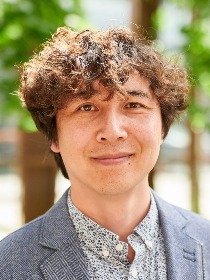 Ming Cao has since 2016 been a professor of networks and robotics with the Engineering and Technology Institute (ENTEG) at the University of Groningen, the Netherlands, where he started as an assistant professor in 2008. Since 2022 he is the director of the Jantina Tammes School of Digital Society, Technology and AI at the same university. He received the Bachelor degree in 1999 and the Master degree in 2002 from Tsinghua University, China, and the Ph.D. degree in 2007 from Yale University, USA. From 2007 to 2008, he was a Research Associate at Princeton University, USA. He worked as a research intern in 2006 at the IBM T. J. Watson Research Center, USA. He is an IEEE Fellow. He is the 2017 and inaugural recipient of the Manfred Thoma medal from the International Federation of Automatic Control (IFAC) and the 2016 recipient of the European Control Award sponsored by the European Control Association (EUCA). He is a Senior Editor for Systems and Control Letters, and is or has been an Associate Editor for IEEE Transactions on Automatic Control, IEEE Transaction on Control of Network Systems, IEEE Transactions on Neural Networks and Learning Systems, IEEE Transactions on Circuits and Systems, IEEE Robotics & Automation Magazine, and IEEE Circuits and Systems Magazine. He is a member of the IFAC Council and a vice chair of the IFAC Technical Committee on Large-Scale Complex Systems. His research interests include autonomous robots and multi-agent systems, complex networks and decision-making processes.
Ming Cao has since 2016 been a professor of networks and robotics with the Engineering and Technology Institute (ENTEG) at the University of Groningen, the Netherlands, where he started as an assistant professor in 2008. Since 2022 he is the director of the Jantina Tammes School of Digital Society, Technology and AI at the same university. He received the Bachelor degree in 1999 and the Master degree in 2002 from Tsinghua University, China, and the Ph.D. degree in 2007 from Yale University, USA. From 2007 to 2008, he was a Research Associate at Princeton University, USA. He worked as a research intern in 2006 at the IBM T. J. Watson Research Center, USA. He is an IEEE Fellow. He is the 2017 and inaugural recipient of the Manfred Thoma medal from the International Federation of Automatic Control (IFAC) and the 2016 recipient of the European Control Award sponsored by the European Control Association (EUCA). He is a Senior Editor for Systems and Control Letters, and is or has been an Associate Editor for IEEE Transactions on Automatic Control, IEEE Transaction on Control of Network Systems, IEEE Transactions on Neural Networks and Learning Systems, IEEE Transactions on Circuits and Systems, IEEE Robotics & Automation Magazine, and IEEE Circuits and Systems Magazine. He is a member of the IFAC Council and a vice chair of the IFAC Technical Committee on Large-Scale Complex Systems. His research interests include autonomous robots and multi-agent systems, complex networks and decision-making processes.
|
"Motion-Copying System for Reproduction of Human Motions"
wygłosi prof. Seiichiro Katsura - Keio University
The reproduction and transfer of various human skills to robots are essential not only for automation but also for supporting human activities. We have developed a novel method for preserving and reproducing human motion based on advanced motion control technology. This method, called the Motion-Copying System (MCS), serves as a spatio-temporal coupler for real-world haptic information.
Similar to the preservation of sound and visual data, the MCS can capture and reproduce the raw force and position information of human operators. Once human motions are stored as digital data, it becomes possible not only to analyze expert skills but also to transfer them to robots. Furthermore, this enables quantitative training, including applications in rehabilitation.
In this lecture, we will also present recent developments and challenges related to medical applications.
|
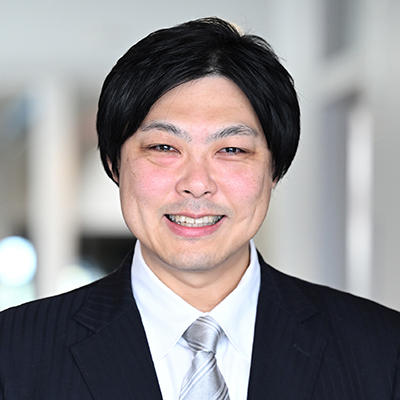 Seiichiro Katsura received his B.E. degree in System Design Engineering, and his M.E. and Ph.D. degrees in Integrated E-Design Engineering, from Keio University, Yokohama, Japan, in 2001, 2002, and 2004, respectively. From 2003 to 2005, he was a Research Fellow with the Japan Society for the Promotion of Science (JSPS). From 2005 to 2008, he was with the Nagaoka University of Technology, Nagaoka, Niigata, Japan. Since 2008, he has been with the Department of System Design Engineering, Keio University, Yokohama, Japan, where he is currently a Professor.
In 2017, he was a Visiting Researcher at the Laboratory for Machine Tools and Production Engineering (WZL), RWTH Aachen University, Aachen, Germany. His research interests include applied abstraction, human support systems, data-driven robotics, wave systems, energy conversion in systems, and electromechanical integration systems.
Prof. Katsura has been actively involved in the IEEE Industrial Electronics Society (IES). He serves as a Senior Editor for the IEEE/ASME Transactions on Mechatronics and as an Associate Editor for the IEEE Journal of Emerging and Selected Topics in Industrial Electronics. He previously served as an Associate Editor for the IEEE Transactions on Industrial Electronics and is currently Chair of the IES Technical Committee on Sensors and Actuators.
He is the author or co-author of more than 200 journal papers, 550 peer-reviewed international conference papers, and 35 patents. His awards include the Institute of Electrical Engineers of Japan (IEEJ) Distinguished Paper Award (2003, 2017), the Best Paper Award at the European Power Electronics and Motion Control Conference (EPE-PEMC’08, 2008), the IEEE IES Best Conference Paper Award (2012), the JSPS Prize (2016), and the Istvan Nagy Award (2024).
Seiichiro Katsura received his B.E. degree in System Design Engineering, and his M.E. and Ph.D. degrees in Integrated E-Design Engineering, from Keio University, Yokohama, Japan, in 2001, 2002, and 2004, respectively. From 2003 to 2005, he was a Research Fellow with the Japan Society for the Promotion of Science (JSPS). From 2005 to 2008, he was with the Nagaoka University of Technology, Nagaoka, Niigata, Japan. Since 2008, he has been with the Department of System Design Engineering, Keio University, Yokohama, Japan, where he is currently a Professor.
In 2017, he was a Visiting Researcher at the Laboratory for Machine Tools and Production Engineering (WZL), RWTH Aachen University, Aachen, Germany. His research interests include applied abstraction, human support systems, data-driven robotics, wave systems, energy conversion in systems, and electromechanical integration systems.
Prof. Katsura has been actively involved in the IEEE Industrial Electronics Society (IES). He serves as a Senior Editor for the IEEE/ASME Transactions on Mechatronics and as an Associate Editor for the IEEE Journal of Emerging and Selected Topics in Industrial Electronics. He previously served as an Associate Editor for the IEEE Transactions on Industrial Electronics and is currently Chair of the IES Technical Committee on Sensors and Actuators.
He is the author or co-author of more than 200 journal papers, 550 peer-reviewed international conference papers, and 35 patents. His awards include the Institute of Electrical Engineers of Japan (IEEJ) Distinguished Paper Award (2003, 2017), the Best Paper Award at the European Power Electronics and Motion Control Conference (EPE-PEMC’08, 2008), the IEEE IES Best Conference Paper Award (2012), the JSPS Prize (2016), and the Istvan Nagy Award (2024).
|
"Postępowania awansowe w dziedzinie nauk inżynieryjno-technicznych w dyscyplinie automatyka, elektronika, elektrotechnika i technologie kosmiczne"
wygłosi prof. Andrzej Bartoszewicz, prof. Mariusz Malinowski, prof. Andrzej Sikorski
W referacie omówione zostaną aktualne problemy postępowań awansowych w dziedzinie nauk inżynieryjno-technicznych w dyscyplinie automatyka, elektronika, elektrotechnika i technologie kosmiczne oraz w dyscyplinach pokrewnych. Na wstępie przedstawione zostaną ustawowe podstawy działania Rady Doskonałości Nukowej oraz jej główne zadania. W dalszej części referatu wskazane będą najważniejsze akty prawne regulujące postępowania awansowe oraz warunki uzyskania stopni doktora i doktora habilitowanego, a także warunki uzyskania tytułu profesora. Odrębna część referatu poświęcona będzie znaczeniu wskaźników naukometrycznych w postępowaniach awansowych. W szczególności pokazne będzie, że wskaźniki te z jednej strony są istotne ponieważ zwykle dość dobrze odzwierciedlają rozpoznawalność kandydatki/kandydata w międzynarodowym środowisku naukowym, a z drugiej muszą być zawsze traktowane odpowiednio do obszaru badań i "strtegii publikacyjnej" konkretnej osoby. Ważna część prezentacji przedstawiać będzie problemy rzetelności naukowej i jej weryfikacji w postępowaniach awansowych. Na zakończenie zaprezentowane będą uwagi techniczne, które mogą być przydatne zarówno dla osób ubiegających się o stopnie lub tytuł naukowy, jak i dla recenzentów w postępowaniach promocyjnych.
|
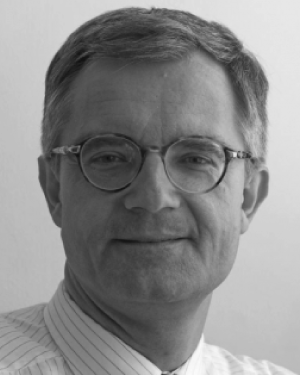 Andrzej Bartoszewicz received the Ph.D. degree from the Lodz University of Technology, Lodz, Poland, in 1993. He is currently a professor of control systems with the Faculty of Electrical, Electronic, Computer and Control Engineering, the head of the Electric Drive and Industrial Automation Unit and the director of the Institute of Automatic Control. He has authored three monographs and over 370 papers, primarily in the field of discrete time sliding mode control, inventory management, and congestion control in data transmission networks. Prof. Bartoszewicz was a recipient of the Polish Prime Minister Award. He is an ordinary member of the Polish Academy of Sciences, the president of the Łódź Branch of the Academy and the chairman of the Committee on Automatic Control and Robotics of the Academy.
Andrzej Bartoszewicz received the Ph.D. degree from the Lodz University of Technology, Lodz, Poland, in 1993. He is currently a professor of control systems with the Faculty of Electrical, Electronic, Computer and Control Engineering, the head of the Electric Drive and Industrial Automation Unit and the director of the Institute of Automatic Control. He has authored three monographs and over 370 papers, primarily in the field of discrete time sliding mode control, inventory management, and congestion control in data transmission networks. Prof. Bartoszewicz was a recipient of the Polish Prime Minister Award. He is an ordinary member of the Polish Academy of Sciences, the president of the Łódź Branch of the Academy and the chairman of the Committee on Automatic Control and Robotics of the Academy.
|
|
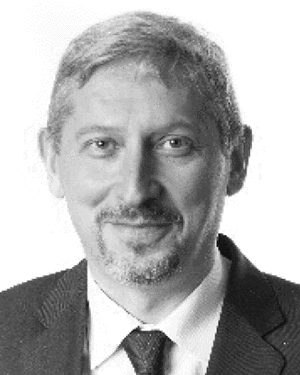 Mariusz Malinowski received the Ph.D. and D.Sc. degrees in electrical engineering from the Institute of Control and Industrial Electronics, Warsaw University of Technology (WUT), Warsaw, Poland, in 2001 and 2012, respectively. He is currently with the Institute of Control and Industrial Electronics, WUT. He has co-authored more than 150 technical papers and seven books. His current research interests include the control and the modulation of grid-side converters, multilevel converters, smart grids, and power-generation systems based on renewable energies. Prof. Malinowski was a recipient of the IEEE IES David Irwin Early Career Award, IEEE IES Bimal Bose Energy Systems Award, Polish Prime Minister Award and the Polish Ministry of Science and High Education Award. He is a Fellow of IEEE and a corresponding member of the Polish Academy of Sciences.
Mariusz Malinowski received the Ph.D. and D.Sc. degrees in electrical engineering from the Institute of Control and Industrial Electronics, Warsaw University of Technology (WUT), Warsaw, Poland, in 2001 and 2012, respectively. He is currently with the Institute of Control and Industrial Electronics, WUT. He has co-authored more than 150 technical papers and seven books. His current research interests include the control and the modulation of grid-side converters, multilevel converters, smart grids, and power-generation systems based on renewable energies. Prof. Malinowski was a recipient of the IEEE IES David Irwin Early Career Award, IEEE IES Bimal Bose Energy Systems Award, Polish Prime Minister Award and the Polish Ministry of Science and High Education Award. He is a Fellow of IEEE and a corresponding member of the Polish Academy of Sciences.
|
|
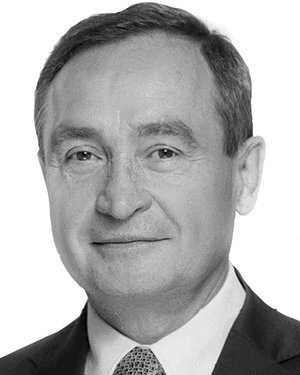 Andrzej Sikorski received the M.Sc. degree from Bialystok University of Technology, Białystok, Poland, in 1980, the Ph.D. degree from Warsaw University of Technology, Warsaw, Poland, in 1989, and the D.Sc. degree from Poznan University of Technology, Poznań, Poland, in 2000, all in electrical engineering. He has authored 2 monographs and coauthored more than 150 papers in technical journals and conference proceedings. In 2011 he was bestowed professorship in technical sciences by the President of the Republic of Poland. His research interests include the areas of electric drives, power electronics, particularly ac/dc/ac back-to-back converters. He is a member of the Committee on Electrical Engineering of the Polish Academy of Sciences and the chairman of Białystok Branch of the Polish Society of Theoretical and Applied Electrical Engineering.
Andrzej Sikorski received the M.Sc. degree from Bialystok University of Technology, Białystok, Poland, in 1980, the Ph.D. degree from Warsaw University of Technology, Warsaw, Poland, in 1989, and the D.Sc. degree from Poznan University of Technology, Poznań, Poland, in 2000, all in electrical engineering. He has authored 2 monographs and coauthored more than 150 papers in technical journals and conference proceedings. In 2011 he was bestowed professorship in technical sciences by the President of the Republic of Poland. His research interests include the areas of electric drives, power electronics, particularly ac/dc/ac back-to-back converters. He is a member of the Committee on Electrical Engineering of the Polish Academy of Sciences and the chairman of Białystok Branch of the Polish Society of Theoretical and Applied Electrical Engineering.
|
|


 Ryszard Michał STRZELECKI ur. w 1955 r w Bydgoszczy, w latach 1976-1981 studiował na Wydziale Elektroniki Przemysłowej Politechniki Kijowskiej. Tam też w 1984 r. uzyskał stopień doktora. W 1991 r. w Instytucie Elektrodynamiki Akademii Nauk USRR w Kijowie obronił pracę habilitacyjną na temat „Sterowanie predykcyjne przekształtników energoelektronicznych z komutacją wymuszoną”. W 1999 r. z rąk Prezydenta RP otrzymał tytuł profesora nauk technicznych.
Działalność naukową rozpoczął w ATR w Bydgoszczy w 1981 roku. W latach 1993 do 2003 pracował w Uniwersytecie Zielonogórskim, gdzie od 1995 kierował Instytutem Inżynierii Elektrycznej. Od 2004 do 2017 był zatrudniony w Akademii Morskiej w Gdyni, a także od 2008 do 2021 w Instytucie Elektrotechniki w Warszawie. W latach 2017-2024 był związany z Politechniką Gdańską. Obecnie jest profesorem zwyczajnym w Uniwersytecie Morskim w Gdyni w Katedrze OZE i E-mobilności a także konsultantem naukowym ds. energoelektroniki zarządu firmy AREX Sp. z o.o. (WB Group) w Gdyni. Autor wielu artykułów naukowych, monografii, patentów i wdrożeń, uhonorowany wieloma wyróżnieniami i nagrodami. Członek Komitetu Elektrotechniki Polskiej Akademii Nauk. Jego zainteresowania badawcze w szczególności dotyczą energoelektronicznych układów kondycjonowania, sterowania jakością i przepływem energii elektrycznej z uwzględnieniem zagadnień „smart” sieci DC i AC.
Ryszard Michał STRZELECKI ur. w 1955 r w Bydgoszczy, w latach 1976-1981 studiował na Wydziale Elektroniki Przemysłowej Politechniki Kijowskiej. Tam też w 1984 r. uzyskał stopień doktora. W 1991 r. w Instytucie Elektrodynamiki Akademii Nauk USRR w Kijowie obronił pracę habilitacyjną na temat „Sterowanie predykcyjne przekształtników energoelektronicznych z komutacją wymuszoną”. W 1999 r. z rąk Prezydenta RP otrzymał tytuł profesora nauk technicznych.
Działalność naukową rozpoczął w ATR w Bydgoszczy w 1981 roku. W latach 1993 do 2003 pracował w Uniwersytecie Zielonogórskim, gdzie od 1995 kierował Instytutem Inżynierii Elektrycznej. Od 2004 do 2017 był zatrudniony w Akademii Morskiej w Gdyni, a także od 2008 do 2021 w Instytucie Elektrotechniki w Warszawie. W latach 2017-2024 był związany z Politechniką Gdańską. Obecnie jest profesorem zwyczajnym w Uniwersytecie Morskim w Gdyni w Katedrze OZE i E-mobilności a także konsultantem naukowym ds. energoelektroniki zarządu firmy AREX Sp. z o.o. (WB Group) w Gdyni. Autor wielu artykułów naukowych, monografii, patentów i wdrożeń, uhonorowany wieloma wyróżnieniami i nagrodami. Członek Komitetu Elektrotechniki Polskiej Akademii Nauk. Jego zainteresowania badawcze w szczególności dotyczą energoelektronicznych układów kondycjonowania, sterowania jakością i przepływem energii elektrycznej z uwzględnieniem zagadnień „smart” sieci DC i AC.
 Ming Cao has since 2016 been a professor of networks and robotics with the Engineering and Technology Institute (ENTEG) at the University of Groningen, the Netherlands, where he started as an assistant professor in 2008. Since 2022 he is the director of the Jantina Tammes School of Digital Society, Technology and AI at the same university. He received the Bachelor degree in 1999 and the Master degree in 2002 from Tsinghua University, China, and the Ph.D. degree in 2007 from Yale University, USA. From 2007 to 2008, he was a Research Associate at Princeton University, USA. He worked as a research intern in 2006 at the IBM T. J. Watson Research Center, USA. He is an IEEE Fellow. He is the 2017 and inaugural recipient of the Manfred Thoma medal from the International Federation of Automatic Control (IFAC) and the 2016 recipient of the European Control Award sponsored by the European Control Association (EUCA). He is a Senior Editor for Systems and Control Letters, and is or has been an Associate Editor for IEEE Transactions on Automatic Control, IEEE Transaction on Control of Network Systems, IEEE Transactions on Neural Networks and Learning Systems, IEEE Transactions on Circuits and Systems, IEEE Robotics & Automation Magazine, and IEEE Circuits and Systems Magazine. He is a member of the IFAC Council and a vice chair of the IFAC Technical Committee on Large-Scale Complex Systems. His research interests include autonomous robots and multi-agent systems, complex networks and decision-making processes.
Ming Cao has since 2016 been a professor of networks and robotics with the Engineering and Technology Institute (ENTEG) at the University of Groningen, the Netherlands, where he started as an assistant professor in 2008. Since 2022 he is the director of the Jantina Tammes School of Digital Society, Technology and AI at the same university. He received the Bachelor degree in 1999 and the Master degree in 2002 from Tsinghua University, China, and the Ph.D. degree in 2007 from Yale University, USA. From 2007 to 2008, he was a Research Associate at Princeton University, USA. He worked as a research intern in 2006 at the IBM T. J. Watson Research Center, USA. He is an IEEE Fellow. He is the 2017 and inaugural recipient of the Manfred Thoma medal from the International Federation of Automatic Control (IFAC) and the 2016 recipient of the European Control Award sponsored by the European Control Association (EUCA). He is a Senior Editor for Systems and Control Letters, and is or has been an Associate Editor for IEEE Transactions on Automatic Control, IEEE Transaction on Control of Network Systems, IEEE Transactions on Neural Networks and Learning Systems, IEEE Transactions on Circuits and Systems, IEEE Robotics & Automation Magazine, and IEEE Circuits and Systems Magazine. He is a member of the IFAC Council and a vice chair of the IFAC Technical Committee on Large-Scale Complex Systems. His research interests include autonomous robots and multi-agent systems, complex networks and decision-making processes.
 Seiichiro Katsura received his B.E. degree in System Design Engineering, and his M.E. and Ph.D. degrees in Integrated E-Design Engineering, from Keio University, Yokohama, Japan, in 2001, 2002, and 2004, respectively. From 2003 to 2005, he was a Research Fellow with the Japan Society for the Promotion of Science (JSPS). From 2005 to 2008, he was with the Nagaoka University of Technology, Nagaoka, Niigata, Japan. Since 2008, he has been with the Department of System Design Engineering, Keio University, Yokohama, Japan, where he is currently a Professor.
In 2017, he was a Visiting Researcher at the Laboratory for Machine Tools and Production Engineering (WZL), RWTH Aachen University, Aachen, Germany. His research interests include applied abstraction, human support systems, data-driven robotics, wave systems, energy conversion in systems, and electromechanical integration systems.
Prof. Katsura has been actively involved in the IEEE Industrial Electronics Society (IES). He serves as a Senior Editor for the IEEE/ASME Transactions on Mechatronics and as an Associate Editor for the IEEE Journal of Emerging and Selected Topics in Industrial Electronics. He previously served as an Associate Editor for the IEEE Transactions on Industrial Electronics and is currently Chair of the IES Technical Committee on Sensors and Actuators.
He is the author or co-author of more than 200 journal papers, 550 peer-reviewed international conference papers, and 35 patents. His awards include the Institute of Electrical Engineers of Japan (IEEJ) Distinguished Paper Award (2003, 2017), the Best Paper Award at the European Power Electronics and Motion Control Conference (EPE-PEMC’08, 2008), the IEEE IES Best Conference Paper Award (2012), the JSPS Prize (2016), and the Istvan Nagy Award (2024).
Seiichiro Katsura received his B.E. degree in System Design Engineering, and his M.E. and Ph.D. degrees in Integrated E-Design Engineering, from Keio University, Yokohama, Japan, in 2001, 2002, and 2004, respectively. From 2003 to 2005, he was a Research Fellow with the Japan Society for the Promotion of Science (JSPS). From 2005 to 2008, he was with the Nagaoka University of Technology, Nagaoka, Niigata, Japan. Since 2008, he has been with the Department of System Design Engineering, Keio University, Yokohama, Japan, where he is currently a Professor.
In 2017, he was a Visiting Researcher at the Laboratory for Machine Tools and Production Engineering (WZL), RWTH Aachen University, Aachen, Germany. His research interests include applied abstraction, human support systems, data-driven robotics, wave systems, energy conversion in systems, and electromechanical integration systems.
Prof. Katsura has been actively involved in the IEEE Industrial Electronics Society (IES). He serves as a Senior Editor for the IEEE/ASME Transactions on Mechatronics and as an Associate Editor for the IEEE Journal of Emerging and Selected Topics in Industrial Electronics. He previously served as an Associate Editor for the IEEE Transactions on Industrial Electronics and is currently Chair of the IES Technical Committee on Sensors and Actuators.
He is the author or co-author of more than 200 journal papers, 550 peer-reviewed international conference papers, and 35 patents. His awards include the Institute of Electrical Engineers of Japan (IEEJ) Distinguished Paper Award (2003, 2017), the Best Paper Award at the European Power Electronics and Motion Control Conference (EPE-PEMC’08, 2008), the IEEE IES Best Conference Paper Award (2012), the JSPS Prize (2016), and the Istvan Nagy Award (2024).
 Andrzej Bartoszewicz received the Ph.D. degree from the Lodz University of Technology, Lodz, Poland, in 1993. He is currently a professor of control systems with the Faculty of Electrical, Electronic, Computer and Control Engineering, the head of the Electric Drive and Industrial Automation Unit and the director of the Institute of Automatic Control. He has authored three monographs and over 370 papers, primarily in the field of discrete time sliding mode control, inventory management, and congestion control in data transmission networks. Prof. Bartoszewicz was a recipient of the Polish Prime Minister Award. He is an ordinary member of the Polish Academy of Sciences, the president of the Łódź Branch of the Academy and the chairman of the Committee on Automatic Control and Robotics of the Academy.
Andrzej Bartoszewicz received the Ph.D. degree from the Lodz University of Technology, Lodz, Poland, in 1993. He is currently a professor of control systems with the Faculty of Electrical, Electronic, Computer and Control Engineering, the head of the Electric Drive and Industrial Automation Unit and the director of the Institute of Automatic Control. He has authored three monographs and over 370 papers, primarily in the field of discrete time sliding mode control, inventory management, and congestion control in data transmission networks. Prof. Bartoszewicz was a recipient of the Polish Prime Minister Award. He is an ordinary member of the Polish Academy of Sciences, the president of the Łódź Branch of the Academy and the chairman of the Committee on Automatic Control and Robotics of the Academy. Mariusz Malinowski received the Ph.D. and D.Sc. degrees in electrical engineering from the Institute of Control and Industrial Electronics, Warsaw University of Technology (WUT), Warsaw, Poland, in 2001 and 2012, respectively. He is currently with the Institute of Control and Industrial Electronics, WUT. He has co-authored more than 150 technical papers and seven books. His current research interests include the control and the modulation of grid-side converters, multilevel converters, smart grids, and power-generation systems based on renewable energies. Prof. Malinowski was a recipient of the IEEE IES David Irwin Early Career Award, IEEE IES Bimal Bose Energy Systems Award, Polish Prime Minister Award and the Polish Ministry of Science and High Education Award. He is a Fellow of IEEE and a corresponding member of the Polish Academy of Sciences.
Mariusz Malinowski received the Ph.D. and D.Sc. degrees in electrical engineering from the Institute of Control and Industrial Electronics, Warsaw University of Technology (WUT), Warsaw, Poland, in 2001 and 2012, respectively. He is currently with the Institute of Control and Industrial Electronics, WUT. He has co-authored more than 150 technical papers and seven books. His current research interests include the control and the modulation of grid-side converters, multilevel converters, smart grids, and power-generation systems based on renewable energies. Prof. Malinowski was a recipient of the IEEE IES David Irwin Early Career Award, IEEE IES Bimal Bose Energy Systems Award, Polish Prime Minister Award and the Polish Ministry of Science and High Education Award. He is a Fellow of IEEE and a corresponding member of the Polish Academy of Sciences. Andrzej Sikorski received the M.Sc. degree from Bialystok University of Technology, Białystok, Poland, in 1980, the Ph.D. degree from Warsaw University of Technology, Warsaw, Poland, in 1989, and the D.Sc. degree from Poznan University of Technology, Poznań, Poland, in 2000, all in electrical engineering. He has authored 2 monographs and coauthored more than 150 papers in technical journals and conference proceedings. In 2011 he was bestowed professorship in technical sciences by the President of the Republic of Poland. His research interests include the areas of electric drives, power electronics, particularly ac/dc/ac back-to-back converters. He is a member of the Committee on Electrical Engineering of the Polish Academy of Sciences and the chairman of Białystok Branch of the Polish Society of Theoretical and Applied Electrical Engineering.
Andrzej Sikorski received the M.Sc. degree from Bialystok University of Technology, Białystok, Poland, in 1980, the Ph.D. degree from Warsaw University of Technology, Warsaw, Poland, in 1989, and the D.Sc. degree from Poznan University of Technology, Poznań, Poland, in 2000, all in electrical engineering. He has authored 2 monographs and coauthored more than 150 papers in technical journals and conference proceedings. In 2011 he was bestowed professorship in technical sciences by the President of the Republic of Poland. His research interests include the areas of electric drives, power electronics, particularly ac/dc/ac back-to-back converters. He is a member of the Committee on Electrical Engineering of the Polish Academy of Sciences and the chairman of Białystok Branch of the Polish Society of Theoretical and Applied Electrical Engineering.